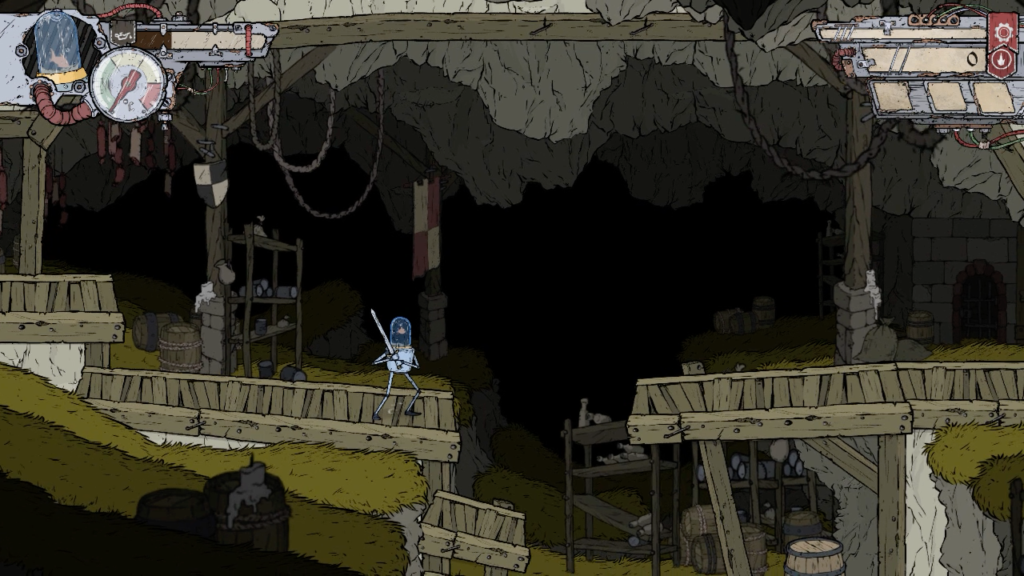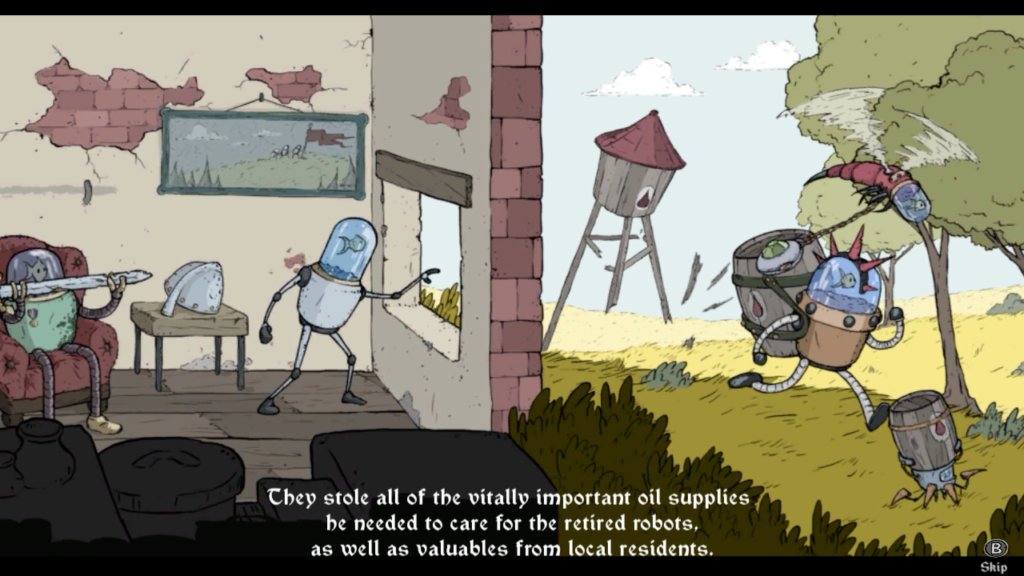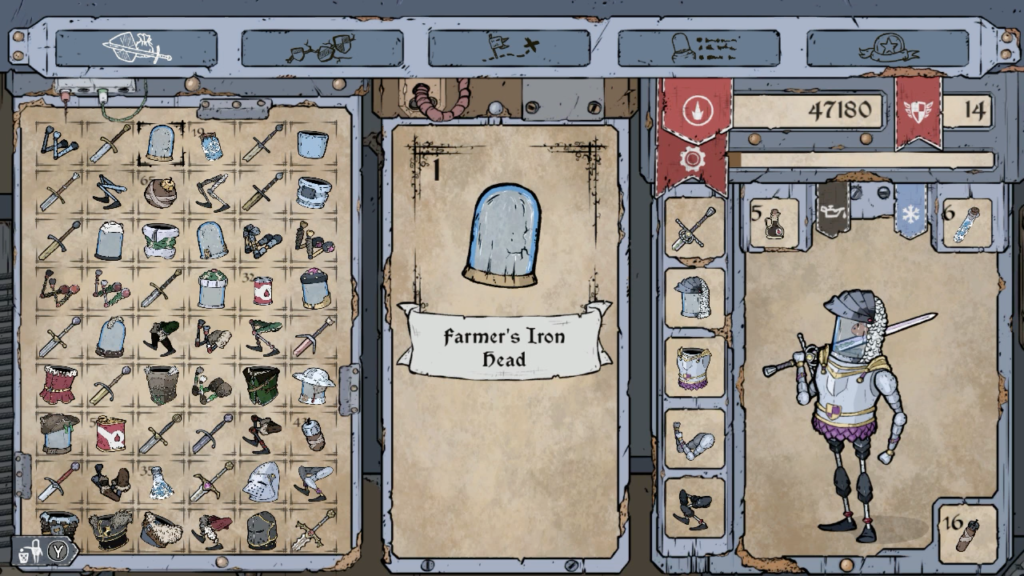Feudal Alloy caught my eye as soon as it appeared on the Switch eshop’s Coming Soon page. It makes a compelling pitch: An adventure-platformer where a knight cavorts across fields and through caves, but the knight is a goldfish floating in a fishbowl controlling a steam-powered suit of robotic armor. But aside from this charming premise, Feudal Alloy also embodies the indie platformer de rigueur: An apparent inspiration from Super Metroid. I haven’t played a Super Metroid-style platformer since Hollow Knight was released last summer, so I was in the mood for another. But while its whimsy holds up throughout, Feudal Alloy feels repetitive and shallow.

Videogames which echo Super Metroid are caught in a precarious balance: Change too little and come off feeling derivative, or change too much and compromise the spirit of its progenitor. That spirit is felt in two ways: One, a suffused mystery fueled by a rejection of the expository, and two, a sense of growth from probing all hidden corners of the map.
Feudal Alloy eschews mystery and embraces exposition. It begins like a storybook, complementing the pastel colors and delicate, hand-drawn visual aesthetic. A motherly voice narrates the opening cutscene: Attu is an “average robot” charged with caring for “veteran robots” (and if you thought the characters were goldfish with powered armor, so did I, and I’ve chosen to dismiss this discrepancy as bad copyediting). He farms sunflowers to create oil that lubricates his charges’ rusting bodies. One day, Attu’s farm is attacked by bandits who make off with the veterans’ valuables and all the sunflower oil. Borrowing a veteran’s sword, Attu pursues the thieves.
That’s the whole plot. There’s no greater understanding of this world to be found by exploring the caves beneath Attu’s farm. There’s no deeper meaning to the packs of goldfish-piloted machines that Attu combats. What I understood from Feudal Alloy’s introduction is the same understanding I had at its conclusion. Attu’s oil is stolen by thieves; he fights them, gets the oil back, and goes home. The end.

Such basic narrative design may carry a game whose strength lies in other design areas, but Feudal Alloy runs into more problems through the “strength through exploration” aspect of adventure-platformers. Simply put: Exploring the environment doesn’t necessarily result in a stronger Attu.
At its adventure-platformer core, Feudal Alloy is routine. Attu begins with a rudimentary set of skills which provide access to a limited starting area. Exploring this area results in upgrades that provide access to more rooms. Repeat until the entire environment is available and the final encounter opens. Feudal Alloy follows this formula with the prerequisite upgrades appearing: Double-jumping, air-dashing, and certain attacks which open specific doors, all increasing the number of areas Attu can access. This concept is familiar and works as it always has.
It is how Feudal Alloy treats additional exploration where the spirit it tries to evoke is undermined. Rather than permanent upgrades, Attu finds new parts for his body and more powerful swords. This equipment is interchangeable and has variable statistics, such as increased attack power, increased health capacity, etc. Discovering a new part thus does not create a new maximum power level and instead offers a new variable which may or may not be an improvement. There are also ten pendants hidden across the map representing the valuables stolen from the veteran robots; finding these offers no discernible advantage or reward.

The more I explored the map, the more I encountered hidden items which had little value. This grew more and more deflating as time went on. It’s good that the variety of equipment allows me to customize Attu in appearance and tactics, but I found these options less rewarding than the continually ascendant power offered by the types of videogames Feudal Alloy echoes.
It’s unfair to hold every videogame which bears the faintest resemblance to Super Metroid to the standards it set. It’s okay to try something new. But when we feel disappointed or unrewarded, as I did by Feudal Alloy, it’s not unreasonable to look back at something which was more successful and examine why that is.
Feudal Alloy echoes the bones of Super Metroid, intentionally or unintentionally, without utilizing the connective tissue that made it work or offering successful new ideas as an alternative.